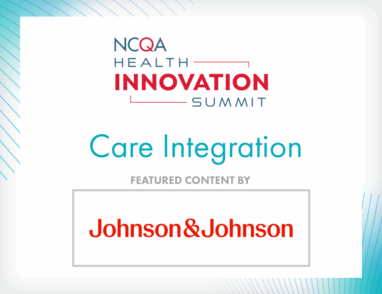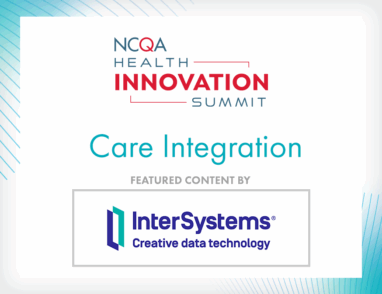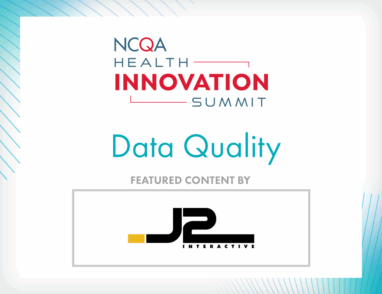America’s First CTO Talks
Digital Innovation
December 13, 2022 · Andy Reynolds
Highlights of our 2022 Health Innovation Summit include Aneesh Chopra’s lively and popular remarks on digital health.
Chopra, who served in the Obama Administration as the first US Chief Technology Officer, is Co-founder and President of CareJourney.
Top takeaways—all from his conversation on the main conference stage with NCQA CTO Ed Yurcisin—include:
1. Just a few people of goodwill can make real progress.
- Chopra emphasized that it only takes a handful of motivated, advanced organizations to develop standards and show the rest of the industry what’s possible in health IT.
- “We can come together as an industry, reach consensus and hand off the opportunity for regulators to scale what works.”
- “I want to thank NCQA for joining us on a very narrow sliver of the problem, which is how do we deal with screening individuals for social needs?” Chopra was referring to our new social needs screening measure, covered in our Future of HEDIS webinar series. See the video or annotated transcript from Episode 12, starting at 9 minutes, 30 seconds.
- “What we’re doing today is basically running faster than regulation, as we should, to get the community to rally on a FHIR-based approach.”
2. The four most important words: “Evidence of industry adoption.”
- This point—which Chopra has made on Twitter—flowed from his observation about how much a motivated few can accomplish.
- More than a few “people of goodwill” in the audience responded when Chopra said, “Raise your hand if you would like to participate in a FHIR-based approach for quality measurement.”
- “We’re going to get moving. I hope we can put points on the board, measured in months, not years. Because everything in the Cures Act allows us to stand up and make a difference.”

Aneesh Chopra, CareJourney Co-Founder and President, and the first CTO of the United States, addresses the 2022 Health Innovation Summit Audience, while NCQA CTO Ed Yurcisin looks on.
3. Big things coming are coming December 31.
- By the end of 2022, vendors of certified APIs must give health care organizations a way to allow API users (providers) to access data in the system.
- Payers and providers can exchange clinical data elements in bulk.
- Control of API access is decoupled from certification, giving providers power.
4. Some bad news: Health IT’s backlash
In lighter moment, Chopra lamented “practical things we’ve done to block policy advancements.”
- Electronic Quality Measures (eCQM) mandate for Accountable Care Organizations.
- This was “one of the few examples in history where a nurse manually chart abstracting was cheaper than upgrading to the digital alternative.”
- Chopra’s larger point: “Healthcare is the only sector where productivity went down after the injection of IT.”
- Surprise billing legislation
- “CMS said, ‘FYI, the complexities of this requirement make it virtually impossible for providers to comply by January 2022. So we’re deferring enforcement’.”
- “The whole point of surprise billing is that you get to know in advance what it’s going to cost you. The concept was consumers have a right to a good faith estimate three days prior to surgery. And then, “Oh, whoops. The IT doesn’t work. We can’t calculate [the estimates].”
5. Interoperability problems aren’t inevitable.
- “Our original sin, maybe, was that we didn’t mandate an open data model for healthcare.”
- The Common Clinical Data Set launched in 2010 with 10 data elements and hoped to expand through industry consensus. By the time of the 21st Century Cures Act more than a decade later, no data elements had been added.
- The energy sector offers a contrast to health care’s gridlock. One-thousand people who work in oil, gas and related fields came to consensus on nearly every data element their group addressed: “They don’t have an interoperability problem.
NCQA Suggests
- Learn from 2022 Health Innovation Summit keynote speakers. Chopra was 1 of more than 20 headliners whose insights are available on demand.
- Find out about the 2023 Health Innovation Summit. It’s sure to be even bigger and better!







